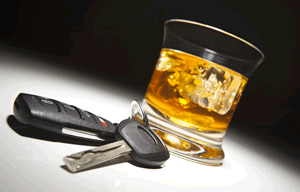Illinois DUI Penalties
Illinois DUI laws and penalties
Each State within the United States has been given the authority to write their own laws on Driving Under the Influence, or better known as DUI. Within this article, we will explore the different DUI laws within the State of Illinois, and their penalties. To begin with, Illinois has a "Lookback Period" from the time you aquired your license privileges in Illinois. That means, any prior DUI's you have will count as a prior offense and will become relevant to the sentencing you are now facing with your curent DUI. This is also known as a "washout" period.
What constitutes a high BAC for a DUI in Illinois?
- Under 21: .00% - zero tolerance
- 21 or Older: .08%
- Commercial: .04%
There is never an acceptable time to drink and drive, as your vision, reasoning, along with your mental capacity to make important decisions and judgments are severely hindered and are not capable of bouncing back to what you are capable to perform without alcohol in your system. Each person is different and their tolerance for alcohol is severely unpredictable, making it impossible to say how many drinks are "normal" or not. This is what requires law enforcement to perform a chemical test on suspecting DUI offenders. If you are pulled over and are requested to take a chemical test to determine your BAC, or Blood Alcohol Content, the State of Illinois has an implied consent law. This means that if you refuse to submit to a chemical test you will be subject to a fine and automatic licnese suspension. For refusal to take the chemical test, the penalties are as follows:
- First Offense: 1 year license suspension
- Second Offense: 3 years license suspension
- Third Offense: 3 years license suspension
What are the penalties within the Illinois DUI laws?
There are several penalties within the Illinois DUI laws, and we will explore them in this section. Should you be pulled over and found guilty of Driving Under the Influence of alcohol within the boarders of the State of Illinois, the following are the consequences you will be facing:
Penalty of Jail
- First Offense: Up to 1 year
- Second Offense: Up to 1 year
- Third Offense: 3 to 7 years
- Fourth Offense: TBT years & Class 2 Felony
- Fifth Offense: TBT years & Class 1 Felony
- Sixth Offense: TBT & Class X Felony
Penalties and Fines
- First Offense: Up to $2,500
- Second Offense: Up to $2,500
- Third Offense: Up to $2,500
- Fourth Offense: Manditory minimum $5,000
- Fifth Offense: Manditory minimum $5,000
- Sixth Offense: Manditory minimum $5,000
Penalty of License Suspension
- First Offense: Minimum 1 year
- Second Offense: Minimum 5 years
- Third Offense: Minimum 10 years
- Fourth Offense: Suspension for Life
- Fifth Offense: Suspension for Life
- Sixth Offense: Suspension for Life
Penalty of Igniton Interlock Device (IID)
- First Offense: Yes
- Second Offense: Yes
- Third Offense: Yes
- Fourth Offense: N/A
- Fifth Offense: N/A
- Sixth Offense: N/A
Conclusion
It is important to note that laws change, as well as their application and interpretation of them. Due to the fact that there are multiple jurisdictions within a State and each may choose to enforce the law in different ways, it is important to prepare for the unexpected. For this reason, it would be in your best interest to retain the services of a professional and experienced lawyer who is well versed in Illinois DUI laws, and is capable of giving you the direction you need for your specific case, along with being fully aware of the current laws pertaining to DUI.
Related Pages
Article of the Day
Indiana Car Accident Statute of Limitations
This article will explain details on the car accident statute of limitations for the state of Indiana.Category: Injury Law


